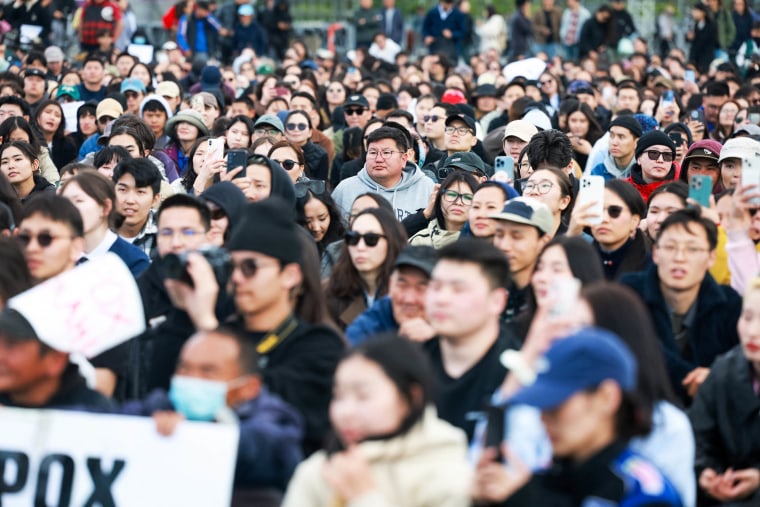-
Jason Biggs opens up about desperate cocaine use at height of fame - 32 mins ago
-
Vikings’ Kevin O’Connell Speaks Out About Rumored Aaron Rodgers Interest - 43 mins ago
-
Diamondbacks RHP Corbin Burnes will undergo Tommy John surgery - about 1 hour ago
-
How to Watch Andorra vs England: Live Stream FIFA World Cup Qualifiers, TV Channel - about 1 hour ago
-
DMV scam texts target drivers in 14 states with fake penalty threats - 2 hours ago
-
2025 Vikings game-by-game predictions: Will J.J. McCarthy prove to be right QB move? - 2 hours ago
-
Woman Buys 1963 Wedding Dress for $5 at Estate Sale—but There’s a Twist - 2 hours ago
-
Israel says it has retrieved the body of a Thai hostage kidnapped into Gaza on Oct. 7, 2023 - 2 hours ago
-
Rescue Dog Who Loves Playing With Water Wins Pet of the Week - 3 hours ago
-
2025 Giants game-by-game predictions: All gasps, no breaks … and lots of pain - 3 hours ago
Mongolia’s prime minister resigns amid protests over reports of son’s lavish spending
WASHINGTON — Mongolia’s prime minister resigned early Tuesday after he failed to receive enough support in a vote of confidence in parliament, Mongolian media reported. The country’s embassy in Washington confirmed it.
Prime Minister Oyun-Erdene Luvsannamsrai received 44 votes, well short of the 64 needed, according to news site ikon.mn.
The vote followed weeks of protests set off by reports of lavish spending by the prime minister’s son. Some called for the prime minister to step down.
Before the vote, Oyun-Erdene warned that the vote could lead to instability and shake Mongolia’s fledgling democracy.
“If governance becomes unstable, the economic situation deteriorates, and political parties cannot come to consensus. It could lead the public to lose faith in parliamentary rule and potentially put our democratic parliamentary system at risk of collapse,” he said.
He defended his integrity but acknowledged a mistake: “dedicating too much time to major projects while paying insufficient attention to social and internal political matters.”
Oyun-Erdene had held the post for four years and survived previous calls to step down.
Last year, parliament was enlarged from 76 seats to 126 following electoral reforms. It resulted in a coalition government.
Landlocked between Russia and China, Mongolia has struggled to become more democratic after its party-state era. A communist state during the Cold War, it has been transforming into a democracy since the collapse of the Soviet Union.
Protesters have said the country’s mineral riches have benefited business interests and the wealthy, while many Mongolians still live in poverty.

“It’s very difficult to build that foundation for democracy” at a time that Mongolia also must tackle economic problems, which are a major source of people’s frustration, said Erin Murphy, deputy director and senior fellow of India and emerging Asian economics at the Center for Strategic and International Studies.
“We still have to see what happens next and how the new government plans to tackle these issues,” she said.
While democracy is yet to thrive in Mongolia, “it is taking root,” Murphy said.
Source link





























